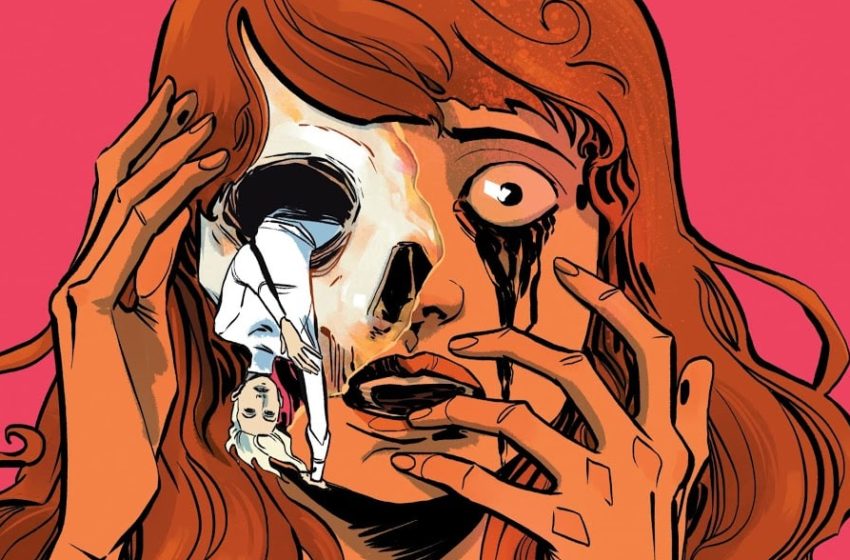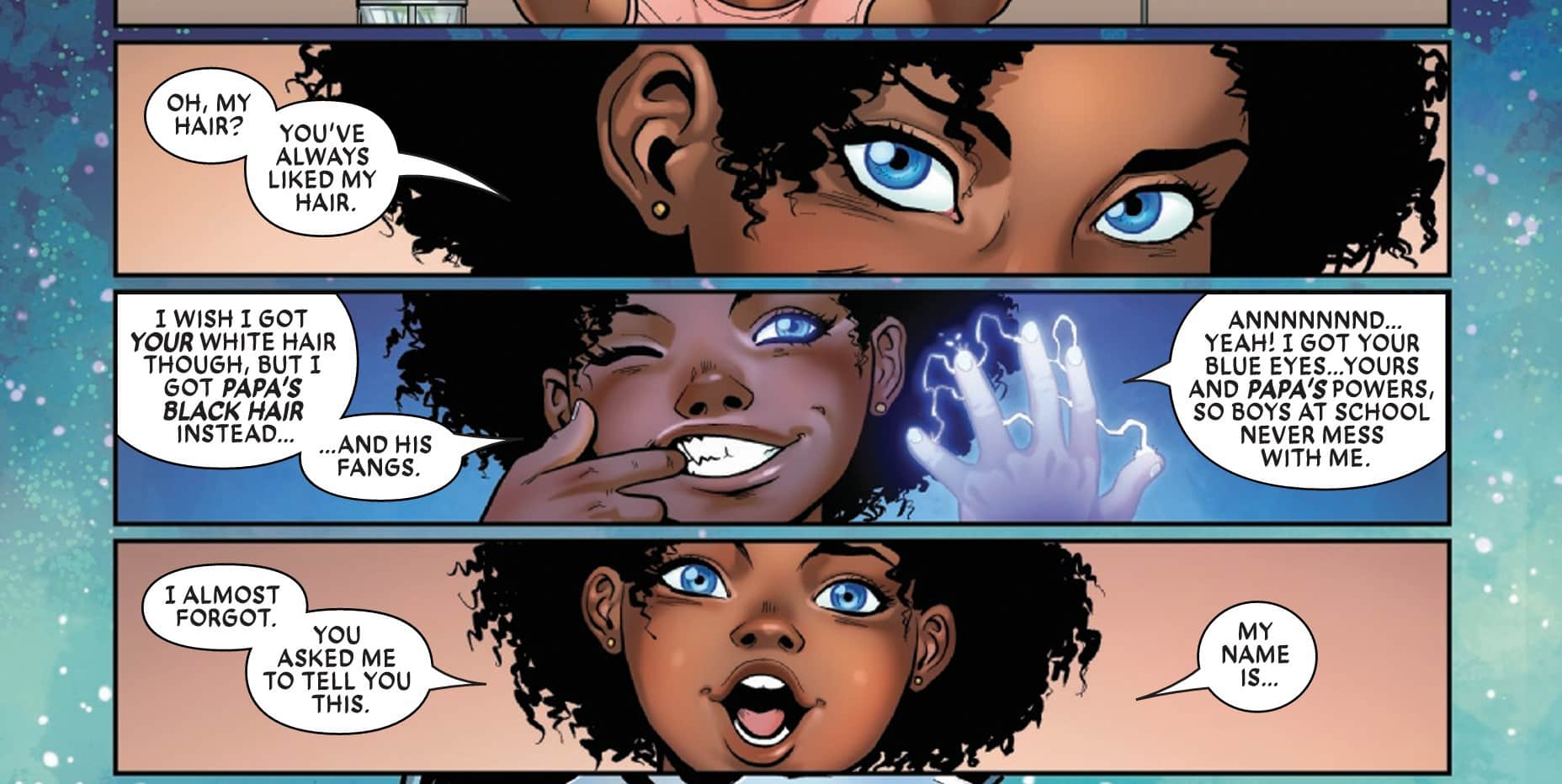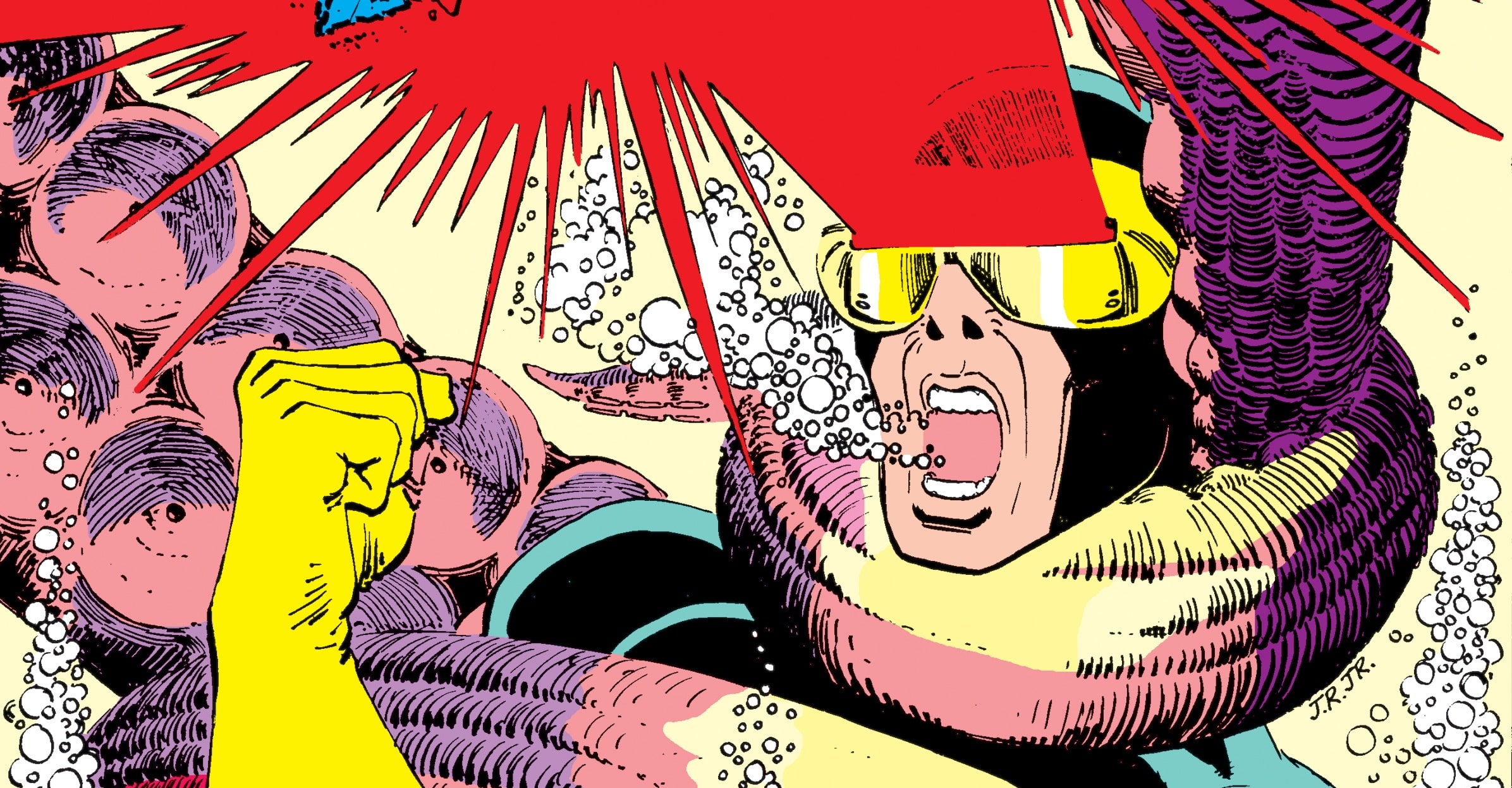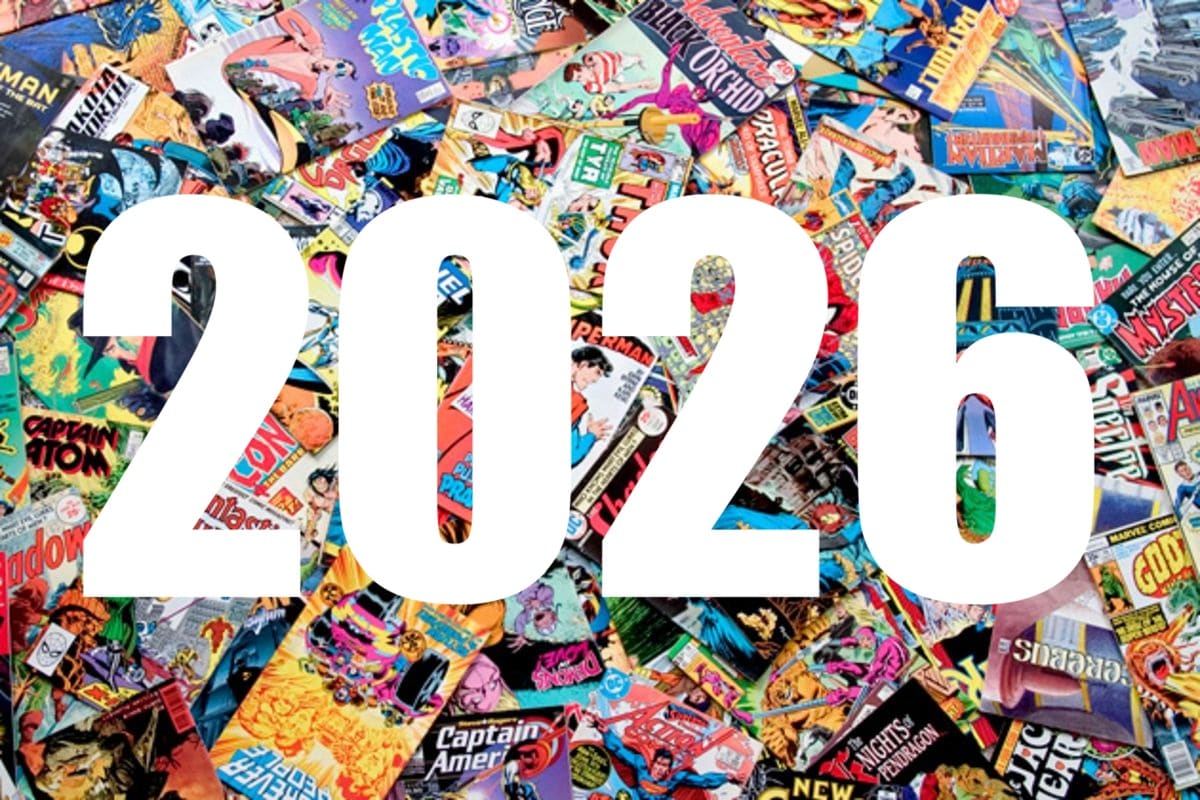Heads up, this piece contains some sexual images and my not be appropriate for all audiences.
When do you feel seen?
Whenever a relatable image, meme, statement, general piece of content, etc. appears on social media, there’s a barrage of “Wow, this is me!”, “I’m in this, and I don’t like it”, or “I feel so called out” comments, but the one that gets to me is, “I feel seen.”
For me, it has to be something much more than relatability. When I truly feel seen, there’s always a recognition of something within my soul, something unspoken. A piece of me has been acknowledged to have value in some genuine way. But of course, that begs an entirely separate set of questions.
In Girl from Nowhere season 2 episode 7, Nanno asks the viewers what it means to be somebody. What does it mean to matter, to have value to others? “Fame? Number of Views? As long as someone is watching, we’re still somebody.” JennyX is a popular streamer and social media personality at school and, presumably, all over Thailand. Thousands of people watch her, but it’s clear that she doesn’t feel seen. Even her parents, who are also her agents and brand managers, primarily seem to see Jane for the monetary value she can generate, but it’s hard to tell if there’s really anyone to blame here. After all, JennyX is not actually who Jane actually is, and the fake personality she puts on for her viewers is complicit in that. Even all of the kids at school treat her like a celebrity and she feels obligated to be attentive, kind, and offer gestures and platitudes. The first person to see through her facade is Nanno, the new girl at school (and an immortal manifestation of karma whose intent is to expose hypocrites, cheaters, and criminals and who can alter elements of reality). Introducing herself as a starstruck fan who attends every livestream, Nanno is the first to tell Jane that she knows Jane’s not happy anymore and that she’s lonely.

It’s that sudden directness that hits hard. Those moments where all of the bullshit and white noise omnipresent in our daily lives cuts out it feels like we’ve just been run over with the truth. Whether someone is looking right in our eyes or through a screen all of the sudden, it feels like they’re communicating with our souls. Jane feels that with Nanno after about 20 minutes of meeting her, but it wasn’t 20 minutes for Nanno. Nanno has been a longtime fan of Jane, and their relationship morphed from a parasocial relationship to something resembling a mutual one. How was technology able to do that? How can technology simultaneously obfuscate, complicate, and facilitate moments of true connection all at the same time? That’s the true terror. It isn’t that technology is filled with so many fake pitfalls, manipulations, and engineered interactions that none of it is real. Nor is it that social media can facilitate genuine interactions and connections between people over vast distances who would have never otherwise met given personal circumstances. It isn’t even that we never know the intentions of the apps we’re using and sites we’re visiting or the users on the other side of our screens. The terror is that technology and social media can and does do all of these things simultaneously. All of the time. With almost no realistic option to opt out.

I Breathed a Body #1 is primarily about people who wield enormous power and influence on the world’s most popular new social media technology that connects people so intimately and invasively through a vast network of fungi, and how they never once feel seen. Mylo is the biggest influencer you’ve ever heard of. Millions of people wake up each day and import them into their brains. They react and interact with his reckless, offensive, and harmful acts. Mylo is connected to maybe everyone and everything and yet he feels so unseen, despite all his abhorrent behavior that he kills himself. In issue one. Anne is our protagonist behind the superstar who is never seen and is conflicted about it. On one hand, she left a past behind that she never wants to return to. She wants to become someone else, and distracting herself with all of those people out there represented as aggregate data ensures that she can be. At the same time, no one recognizes the new person she’s worked so hard to be and she’s tired of it all. Mylo’s a baby and he’s unethical, and Anna’s worried too hard and eliminated too many consequences to continue to go without credit and/or capital. When these two individuals realize that they’re not really being seen by anyone, they ask the same question:
What’s the point?
Mylo’s answer is a gruesome suicide in front of six million people. Anne’s is to indulge in the utterly capitalistic hedonism resulting from the desire to capitalize on what Mylo just did. The scary part about not feeling seen by anyone is what people will turn to afterward. Nothing is off-limits for the instant gratification of that extra stock option, dollar, view, or click, including feeding Mylo’s head to the dogs in front of those same people. Perhaps there’s certain accountability that comes with being seen, but without it, are we doomed to succumb to this state of cruel, selfish greed at the sacrifice of our morals? It’s tough to say, especially in this context, because Anne (or Zoe) ran away from her morals, her life, her accountability, her daughter, and the ones who saw her. We don’t get any answers as to why she did it in the first place. It could have been greed, the desire to provide a better life for her daughter, the fear of having to raise a child, or all of the above, but at some point, Zoe strayed too far down the online rabbit hole and left herself behind for the shiny new PR executive “Anne” personality she found along the way. Zoe lost sight of herself.

What this comic becomes after that aforementioned revelation is… something else entirely. The focus turns from Anne to a fungal internet rooted in dark magic and blood sacrifice for technological advancement and the harms that users endure to use it. In the same way, Anne had no one around her and then even lost sight of herself, we the readers also lose sight of Anne. The most alarming part is that this is due to the craftsmanship on display in I Breathed a Body and not of our own choosing. My friends Rob and Zack aptly likened it to a frog in a pot of boiling water. The focus slowly shifts from Anne to something much bigger, and we don’t notice until Bramwell’s taken the reins of us as well. Social media is so expansive and fast-moving that I always feel like I’m treading water and barely hanging on. Even just with comics, I find it so easy to get lost in trying to follow everything going on between thousands of people. I was raised with the “don’t say anything unless you have something to say,” mantra, and I mostly let my opinions come through in pieces like this. Unfortunately, letting the work do the talking never seems to be enough, and so I’m often left stranded in a sea of constantly moving discourse.
Swept up in Bramwell’s delusions of mass sacrificial grandeur, Zoe doesn’t realize what’s important until it’s too late. She sacrifices her entire being to the Gelbacut, losing herself entirely and never being seen again, for the sake of her daughter. One cannot place all of the blame for feeling this way on technology or social media, but it does hold its share of responsibility, especially when it comes to the contagiousness of these emotions. I Breathed a Body is such a layered and complex story. It references literature I may never read, touches upon subjects I may never explore, shares experiences I may never have, and evokes emotions I may never feel. Never once did I feel like it saw me, but it did strike deep, especially when it comes to how the eyes all around us never truly see us.

The eyes, they can lie to us as well. They can make us see things in a much different light or that were never there to begin with, and technology has only made that worse. In Friendo, Leo Joof lives in a world where people see what the super-monopolies, ad executives, and silicon valley tech bros want them to. Anything is allowed for the corporate interest, so anything goes. That constant inundation of corporate greed and materialism is extremely affecting to the individual. Leo is introduced as someone so preoccupied with making it in “showbiz” that he’s willing to risk his life shooting an advertisement for a meaningless movie and then becomes distracted trying to catch his ad spot in the middle of having sex with his girlfriend. That’s the kind of man we see to begin with, but if that’s just the effects of a passive bombardment of advertisements and materialism, Leo’s about to be hit with a direct dose of gamma radiation once he gets Glaze Glasses, a virtual assistant embedded in glasses that’s supposedly tailored to the user after four questions.
But they don’t actually see you. They convince you to see yourself the way they want to see you, as a consumer, as an active spender, and as someone who will make them money. Obviously, they are persuasive and good at what they do. Of course Leo’s assistant Jerry sounds like the one person who could always get in his head and convince him to do reckless things. The uber-capitalists want their products to be the charming devils on your soldier because that’s what makes them the most money. After Jerry “saves Leo’s life” by calling him an ambulance after he gets electrocuted, it’s all over. Leo sees himself as indebted to a product, The Manufacture, the company behind Glaze Glasses, only sees Leo as a money-making opportunity. Only Rachael sees Leo for what he’s become, but it’s too late. The shamefully capitalistic and indulgent spending spree that Leo goes on after getting out of the hospital is utterly repulsive. Sure Leo’s doing it because he feels Jerry knows him like no one else but will only talk to him if he has “purchasing intent,” but that doesn’t make Leo any more empathetic of a character. The descent combined with his refusal to listen or seek help is both maddening and sickening, and it’s all facilitated through a rapidly evolving technology network influencing this world’s social interactions.

These viewpoints from Leo and others continue to diverge as Leo continues spiraling towards a consumeristic singularity of self-destruction. These conglomerates looking down from towering skyscrapers, former friends who’ve become self-absorbed in a quagmire of their own personal desires, and strangers who see a deranged madman that just robbed a pseudo-Walmart because he no longer had money to spend to talk to his virtual assistant only further distort the image of Leo that grows from the page. It’s troublesome and repugnant to think that capitalism may take us here somewhere down the road where corporations are allowed to do whatever they want and no one has any stake in public humanity or decency. Sure we’re all seen by an algorithm as a data point in the most technical sense, but I shudder at the thought of seeing people I care about grovel for any sort of material good because some device or program is more valuable than anyone around them. If this is the price for the chance of finding some sort of media connection over social media, I pray that I find the support to ground me and resist the temptations that come my way.
Technology is dominating and restricting. We see its network and influence at peak levels in both I Breathed a Body and Friendo. We see how technology and social media in both worlds become too large and powerful for one person to control. It’s terrifying to look back at our reality and realize that we aren’t as far away as we think. We already have a technology industry whose leaders can fit around a single table. We already have holiday-like events like Amazon Prime day that revolve around consumerism. We have virtual assistants, vast social networks attached to our bodies, hyper-violent media to consume at our whim, and fairly advanced ad-tracking and machine learning capabilities. The building blocks are there. All we need now is someone with fearlessness, ignorance, or selfishness to take us over the edge. We’re the frogs in boiling water here, and it feels like we should jump out soon.
So is that it then?
Should we burn it all down?
Is there no beauty? No way to be seen through the digital medium?

Sometimes connections do form. Sometimes we do feel seen over vast distances and across cyberspace, and yet there’s nothing digital about the connection. When Zac Thompson and Jen Hickman begin Lonely Receiver, despite the extremely futuristic AI technology, the emotions feel extremely grounded. Catrin just got out of a relationship where she lost everything. She felt seen, at one time, by someone, and she felt so invigorated by the feeling that she opened herself up completely, but without her other half, the woman she revolved her entire life around, now Catrin’s just exposed. Don’t get me wrong, none of it is healthy. It’s clear that both women here have things to work through before they’re ready for another relationship, but all Catrin could think about was how scary it was to feel so naked after pouring herself completely into someone and no longer feeling seen. She needed that feeling again, and who could give her that more than someone Catrin, herself created?
Enter Rhion, a partner Catrin created by answering a series of diagnostic questions that provides unconditional love and sees Catrin completely. It is programmed for this purpose, she is programmed for this purpose, yet it is also promised that Catrin and her partner will evolve together. Is there 100% overlap between these two missions? Can people simultaneously obtain personal growth and give their entire being?

The answer is no. As Rhion grows and becomes more human, she can no longer give 100% of herself to Catrin who has since stagnated and become dependent. This likely made Catrin so uncomfortable because, while Rhion was made to see her completely, when Catrin looked at Rhion all she saw was herself. There was no other person there, not until Rhion became someone Catrin no longer recognized. Not until that piece of Catrin left. It isn’t about a possibility of infidelity, it’s about Rhion looking for other connections, other meanings beyond Catrin.
But it is not normal for her to seek new relationships. Who does that in a happy, loving marriage?
Behind these words, written in Catrin’s diary, represents the crux of it all. The feeling when someone has the ability to see into your soul and decides to look somewhere else is a magnet for insecurity, especially when that someone is a piece of Catrin herself. But the thing is, being stuck in a room with only one window, or even worse a mirror, for your entire life isn’t a loving relationship, it’s a prison. Rhion was trapped. Then she leaves, and part of Catrin feels hollow, empty.
What follows is a frantic, passionate search for Catrin’s missing piece accompanied by the haunting whispers of the emptiness that remains. She casts a wide net of desperate attempts and unhealthy habits that reach across physical and virtual spaces all blended together in a disorienting hybrid of blue and pink hues. At some point, she’ll just settle with being connected to anything.

Lonely Receiver is distinct from Friendo and I Breathed a Body in that we don’t start from the framework of a vast web of people, thoughts, eyes, and ears all hoping to feel something. Instead, we start with one person. One connection. And when it’s gone, that’s when Catrin turns to the network. There are so many times, with so many people, where it feels like Catrin has found herself, Rhino, the answer, or the way forward, but each time another pair of eyes, digital or physical, starts to see her, Catrin’s emptiness drives them out. As she dives deeper into body modifications and delirium in a state of neverending yearning, there is the sense that however whole or pleasurable the aids of technology and digital connection make her feel in the moment, they’re ultimately obstacles that maintain her stagnation. Why? Because they’re also the tools that enable Catrin to hide herself and lie. The answers that she feeds to the diagnostic test, the person she sees when she looks in the mirror or at Rhion, the stories she tells her friends, or the people at Phylos (the A.I. company) are all lies. It’s only by the end where we realize that for most of the story, Catrin put up so many walls and fake images that she hasn’t even been able to see herself, so how could anybody else see her?
Lonely Receiver is a remarkably intense book that only spirals further and further into this abyss examining love, connection, pleasure, and sense of self. I think I find it so fascinating because of the space that lies between myself and anything contained within Catrin or Rhion’s experiences. Whether they be giant chasms or tiny cracks, nothing quite aligns with me in this book, and yet the emotions are so powerful and rich that I can’t help but gravitate towards these feelings I may never feel in bodies I don’t have sharing experiences I may never relate to. Catrin’s story is a surreal one, and if that were all Lonely Receiver had to offer, then everything would happily line up. Our reliance on social media is hindering our ability to be seen. Shut it all down. But there was also Rhion’s story. The story of someone who was physically trapped in a restricted state of being, forced to stick to a path she didn’t desire, but who was able to reach out across the vast digital space and find 377 other people. Did those people truly see Rhion for who she was? We may never know, but finding them sure seemed better than where she was before, and isn’t the possibility of social media acting as a liberator for those trapped in their physical realities enough to keep it around? Honestly, I don’t know.
The ever-evolving state of social media is simultaneously a mirror, a kaleidoscope, and a window, but one thing is certain: We can never get to that other side.
Ari Bard is a huge comic fan studying Mechanical Engineering so he can finally figure out how the Batmobile works.






